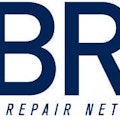SCRS session at SEMA explores OE repair data, vehicle technologies
Jan. 1, 2020
3 min read
In an effort to educate repairers on the vast amount of technical information available, as well as the importance of understanding innovations in vehicle technology, safety features and proper procedures, I-CAR instructor and training expert Toby Chess was on hand to present "Accessing OEM Repair Information" on Tuesday, Nov. 5 from the Collision Repair & Refinish stage on the SEMA Show floor of the North Hall. The two-hour session was the first of several free educational opportunities being offered free of charge through the Society of Collision Repair Specialists' (SCRS') 2013 Repairer Driven Education series.
Throughout the two-hour-long interactive discussion, Chess provided a number of real-world scenarios showcasing the importance of knowing the correct OEM-approved information and procedures when performing a repair, as well as sobering looks at what can happen if these procedures are not followed. Attendees learned about various safety measures being implemented in today's vehicles, as well as their impact on collision repairers today and in the future. Updates to Corporate Average Fuel Economy (CAFÉ) standards, for example, will require that passenger vehicles increase their fuel efficiency from 27.5 mpg to 35.7 mpg, while light trucks will increase their fuel efficiency from 23.5 mpg to 28.6mpg. This means repairers will be seeing an increase in vehicles that are lighter, smaller and safer, but that also contain more aluminum than their older counterparts.
Chess offered an overview of what repairers can expect in future repairs, as well as various tips and tricks repairers should consider when taking on aluminum repair. "You'll see [aluminum] on every car," Chess advised. "Are you prepared to work on more aluminum in the future? You'd better be."
When performing quality, safe repairs, there is no better resource for manufacturer-approved repair information than the automakers themselves. Chess provided details on the clarity that use of technical data like Toyota's Technical Information System (TIS) and Collision Repair Information Bulletins (CRIBs) can provide to the repair process.
"This information shows you exactly where to place MIG weld brazing, for example," he said. "If you don't have that data and your tech hits the wrong spot, you're going to have a problem."
Additional discussion focused on the use of scan tools to properly diagnose vehicles, as well as emerging remote diagnostics technology from tools like the ASTech tool by Collision Diagnostic Services. Above all, Chess urged attendees to be thorough in every job they do, while paying careful attention to using the data out there as a tool in their arsenal.
Additional education sessions being presented throughout the week of the 2013 SEMA Show include "Dispelling Collision Repair Technical Myths" on Wednesday, Nov. 6, "How Did They Do That?! Secrets of the Refinish Masters" on Thursday, Nov. 7 and "Equipping Yourself for Industry Certifications" on Friday, Nov. 8. The free sessions offered by SCRS on the Collision Repair & Refinish stage are made possible with funding and support provided by PPG Automotive Refinish, GM Genuine Parts, BASF Refinish, Ford Motor Company and SEMA.
About the Author

ABRN Wire Reports
These are press releases approved by our ABRN Editors
Sign up for our eNewsletters
Get the latest news and updates